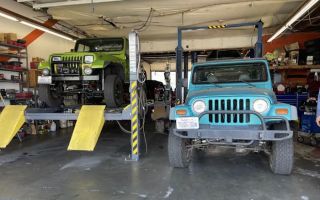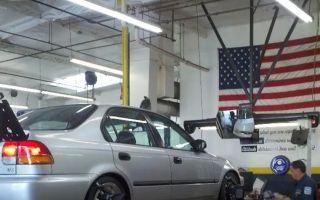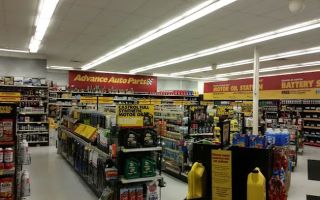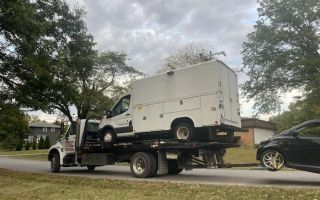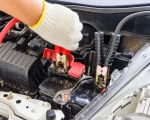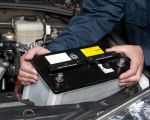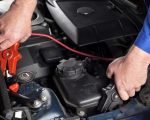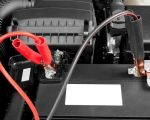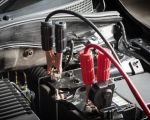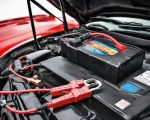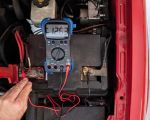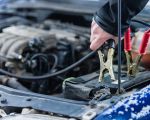How to Identify the Right Replacement Battery for Your Car
1. Understanding Your Car Battery: The Heart of Your Vehicle
Over the years, I’ve learned the hard way how crucial it is to have a reliable car battery. If you’ve ever been stuck with a dead battery on a cold morning or after a long road trip, you understand just how inconvenient and stressful that situation can be. What I didn’t know at the time was that finding the right replacement battery isn’t as simple as picking the first one you see at the auto parts store. There’s a lot more to it than that.
Your car battery is responsible for providing the necessary electrical power to start your engine and keep all the electrical systems running smoothly. When it’s time to replace it, you want to make sure you get the right one that’s suited for your vehicle’s specific needs. In this article, I’ll walk you through the steps to identify the perfect replacement battery, what to look for, and how to ensure it’s a smooth process for you.
2. Know Your Car Battery Specifications
The first thing you need to do when replacing your car battery is to understand your current battery’s specifications. If you’re like me, you might just think of the battery as a generic object, but there’s a reason car batteries are so specific to each make and model. Let me tell you, this is the first mistake I made when I had to replace my first car battery.
Your car’s battery will have several key specifications that you need to match with your replacement. These include:
- Battery Group Size: This is probably the most important specification to get right. The group size refers to the physical dimensions of the battery, including its length, width, and height. It also indicates the placement of the terminals. If you choose a battery that’s too big or too small for your car, it may not fit properly, and the terminals might not line up with the connections.
- Cold Cranking Amps (CCA): This is the measure of the battery’s ability to start your engine in cold temperatures. If you live in a cold climate like I do, this specification is especially important. A higher CCA rating means the battery will perform better in cold weather.
- Reserve Capacity (RC): The reserve capacity refers to how long the battery can power your car’s electrical system if the alternator fails. It’s essentially how much ‘backup’ time you have if something goes wrong with your car’s charging system.
- Voltage: Most cars use a 12-volt battery, but it’s always worth confirming this before buying a replacement. Some hybrid or electric cars might use batteries with a higher voltage, so make sure to double-check.
Once I knew these specifications, I had a better understanding of what I needed to look for when replacing my battery. I also realized that my car’s manual was a helpful guide during this process, as it provided all the necessary specifications for the battery I needed.
3. Where to Find the Right Replacement Battery
Once you know the specifications, the next step is to find the right replacement battery. I quickly learned that there are several places where you can buy a replacement, and each option has its pros and cons.
- Auto Parts Stores: Places like AutoZone, O’Reilly Auto Parts, and Advance Auto Parts are a great choice if you need a battery quickly. They often have a wide range of options and knowledgeable staff who can help you find the right one. Some stores also offer free battery testing and installation, which can be a huge bonus.
- Online Retailers: Shopping online is another option, and I’ve done it a few times for convenience. Websites like Amazon or Walmart allow you to compare prices and read reviews before making a purchase. However, I recommend double-checking the shipping details, as a heavy battery can be expensive to ship.
- Dealerships: If you’re looking for a battery that’s specifically made for your car brand, a dealership is your best bet. However, keep in mind that dealership prices tend to be higher than those at auto parts stores. It’s still worth checking if your car is under warranty or if the dealer offers any special services like free installation.
For example, when I needed to replace the battery in my car last winter, I went to my local AutoZone. They helped me pick out a battery with the right CCA rating, and they even installed it for me at no additional charge. This saved me time and gave me peace of mind knowing that I was getting the right fit.
4. When Should You Replace Your Car Battery?
Knowing when to replace your car battery is crucial. You don’t want to wait until it’s too late, and your car won’t start in the middle of the night on a remote road. Here are the signs that your battery is nearing the end of its life:
- Slow Engine Crank: If you notice that your engine takes longer than usual to start, it could be a sign that your battery is losing its charge. This was one of the first signs I noticed before my old battery died completely.
- Dim Lights: If your headlights or interior lights are dimmer than usual, your battery may be struggling to supply power.
- Check Engine Light: Sometimes the check engine light will appear on your dashboard when your battery is nearing the end of its life.
- Age of the Battery: Most car batteries last between 3 to 5 years. If your battery is approaching that age, it’s a good idea to start thinking about a replacement.
- Swelling or Leaking: A battery that shows signs of swelling or leaking should be replaced immediately, as this could lead to a dangerous situation.
When I first noticed my car’s engine cranking a little slower than usual, I took it to my mechanic, who confirmed that my battery was on its last legs. If you experience any of these signs, it’s important to take action before you’re left stranded.
5. What to Do If You’re Stranded With a Dead Battery
Even with all the preparation in the world, sometimes things go wrong, and you find yourself stranded with a dead battery. It’s one of the most frustrating situations, but don’t panic. I’ve been in this exact scenario before, and there are a few things you can do:
- Jump-Start Your Car: If you have jumper cables and another car available, you can jump-start your car. I did this once with a friend who happened to be nearby. Just make sure you follow the correct procedure, and you can get your car running in no time.
- Call Roadside Assistance: If jump-starting your car isn’t an option, calling for help is your best bet. Roadside assistance services like Rescue & Towing can quickly send a technician to help you get back on the road.
- Replace the Battery on the Spot: In some cases, roadside assistance can provide you with a new battery right there on the spot. This is especially helpful if you’re in a remote location and can’t easily get to a store.
I once had to call Rescue & Towing when I found myself stuck in the middle of a snowstorm. They arrived quickly, and within 30 minutes, I had a new battery installed and was back on the road.
6. How to Maintain Your New Battery
Once you’ve identified and installed the right replacement battery, it’s important to maintain it to get the most life out of it. Here are a few tips to keep your battery in top condition:
- Check the Battery Terminals: Ensure the battery terminals are clean and free of corrosion. Corrosion can prevent your car from starting and reduce battery life.
- Avoid Short Trips: Short trips don’t give your battery enough time to fully charge, so try to avoid too many of them if possible.
- Test the Battery Regularly: Have your battery tested every year to ensure it’s still in good condition, especially if your car is older.
Taking these simple steps can help your new battery last as long as possible. The last thing you want is to deal with another battery failure sooner than expected!


